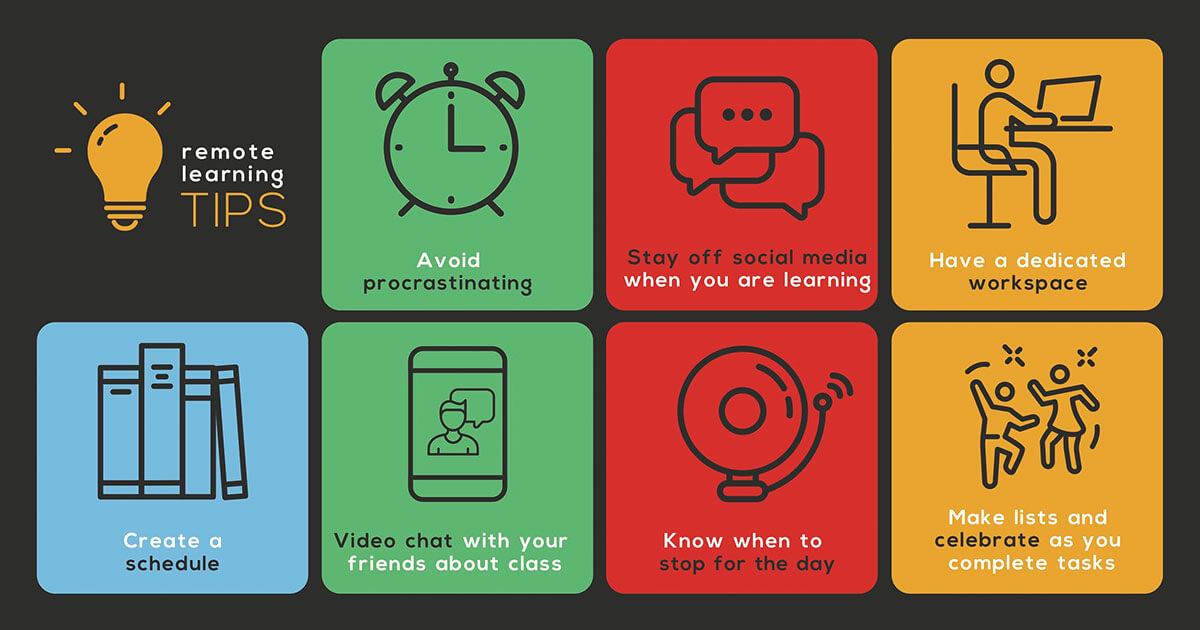As the world continues to adapt to the challenges brought on by the COVID-19 pandemic, education has been one of the most heavily impacted areas. With schools closing their doors and shifting to remote learning, students and teachers alike have had to navigate the uncharted waters of online education. As someone who has personally experienced the joys and struggles of remote learning, I wanted to share some strategies that have helped me find success in this new educational landscape.
First and foremost, it’s important to establish a routine. Treat online learning as you would a regular school day by waking up at a consistent time, getting dressed, and preparing yourself mentally for the day ahead. Create a dedicated study space that is free from distractions and allows you to fully engage in your coursework. By setting a routine and creating an environment conducive to learning, you can maintain a sense of normalcy and enhance your focus and productivity.
Another critical aspect of online learning success is effective time management. Without the structured schedule of a traditional classroom, it’s easy to get overwhelmed or procrastinate. To combat this, I recommend utilizing a planner or digital tools like calendars and task management apps to organize and prioritize your assignments and deadlines. Break down larger tasks into smaller, manageable chunks, and allocate specific blocks of time for studying, attending virtual lectures, and completing assignments. By actively managing your time, you can avoid last-minute cramming sessions and reduce stress levels.
Maintaining open lines of communication with your teachers and classmates is also essential in remote learning. While physical interactions may be limited, utilize the available technological tools such as email, messaging apps, and video conferencing platforms to stay connected. Actively participate in virtual discussions, ask questions, and seek clarification when needed. By engaging with your peers and instructors, you can foster a sense of community and ensure that you are not left feeling isolated or disconnected from the learning process.
Adaptability is another key characteristic for success in online learning. The transition from traditional classrooms to remote education can be daunting, and it’s important to be flexible and embrace change. Familiarize yourself with the online learning platforms and tools used by your institution, such as learning management systems or video conferencing software. Take the time to understand how to navigate these platforms, submit assignments, and access course materials. Embracing new technologies and adapting to virtual learning environments will make your educational journey smoother and more rewarding.
In addition, practicing self-discipline is crucial in online learning. With the freedom and flexibility that comes with remote education, it’s easy to fall into the trap of procrastination or distractions. Set specific goals and hold yourself accountable for completing them. Create a study schedule and stick to it, avoiding unnecessary distractions such as social media or excessive screen time. Practice self-motivation and develop strategies to stay focused and productive, such as using timers or rewarding yourself after achieving milestones. By cultivating self-discipline, you can maximize your learning potential and achieve your academic goals.
Lastly, it’s important to prioritize self-care in the online learning environment. Take breaks, engage in regular physical activity, and nurture your mental well-being. Incorporate activities that bring you joy and help alleviate stress, whether it’s reading a book, practicing yoga, or spending time with loved ones (even virtually). Remember that being an effective learner goes hand in hand with taking care of your overall well-being. By prioritizing self-care, you can maintain a healthy balance between your academic responsibilities and your personal life.
As someone who has experienced the ups and downs of online learning, I can attest to the fact that it requires a unique set of skills and approaches. By establishing a routine, effectively managing your time, communicating actively, remaining adaptable, practicing self-discipline, and prioritizing self-care, you can navigate the challenges of remote education and find success in your online learning journey. Remember, this paradigm shift in education is a temporary one, and by developing these strategies, you are not only setting yourself up for success academically but also gaining valuable skills that will serve you well in any future endeavors. Stay positive, stay motivated, and keep pushing forward. You’ve got this!
